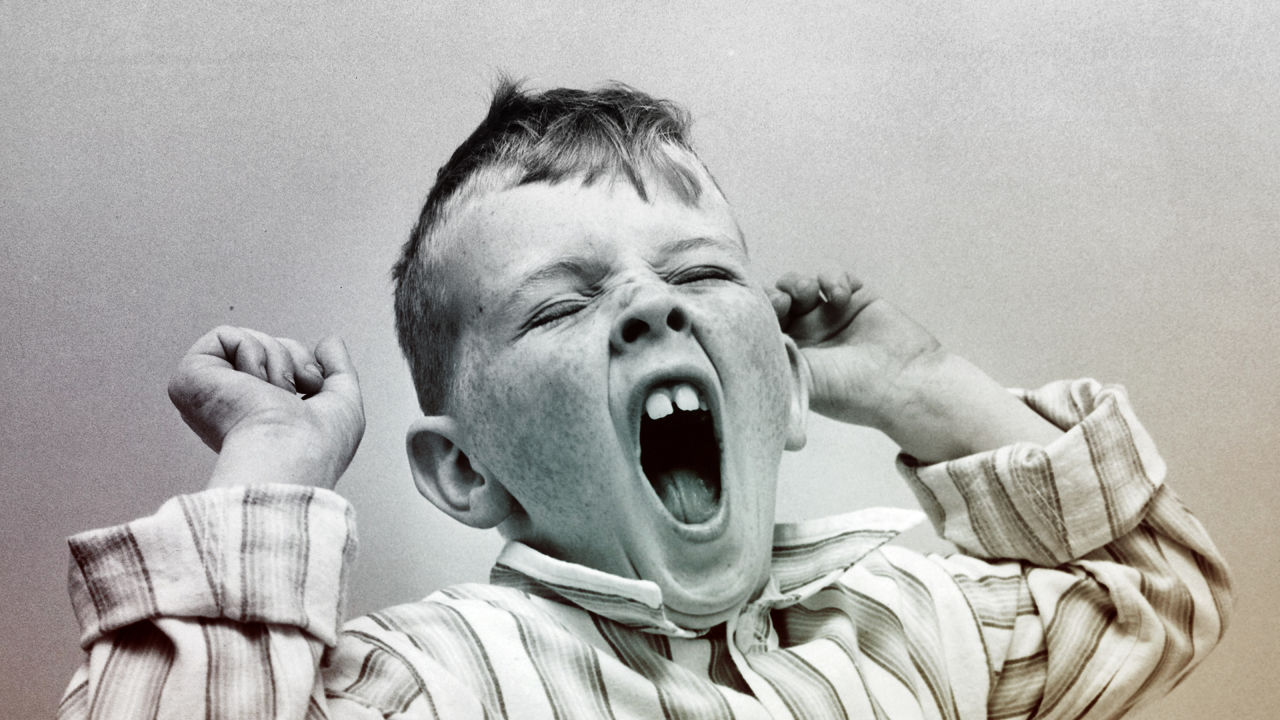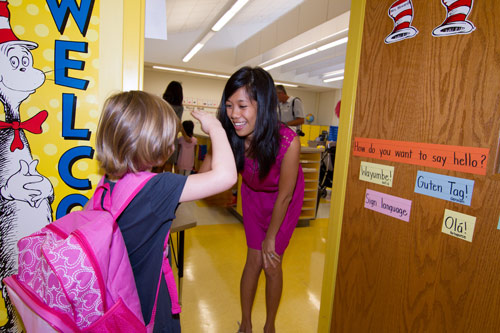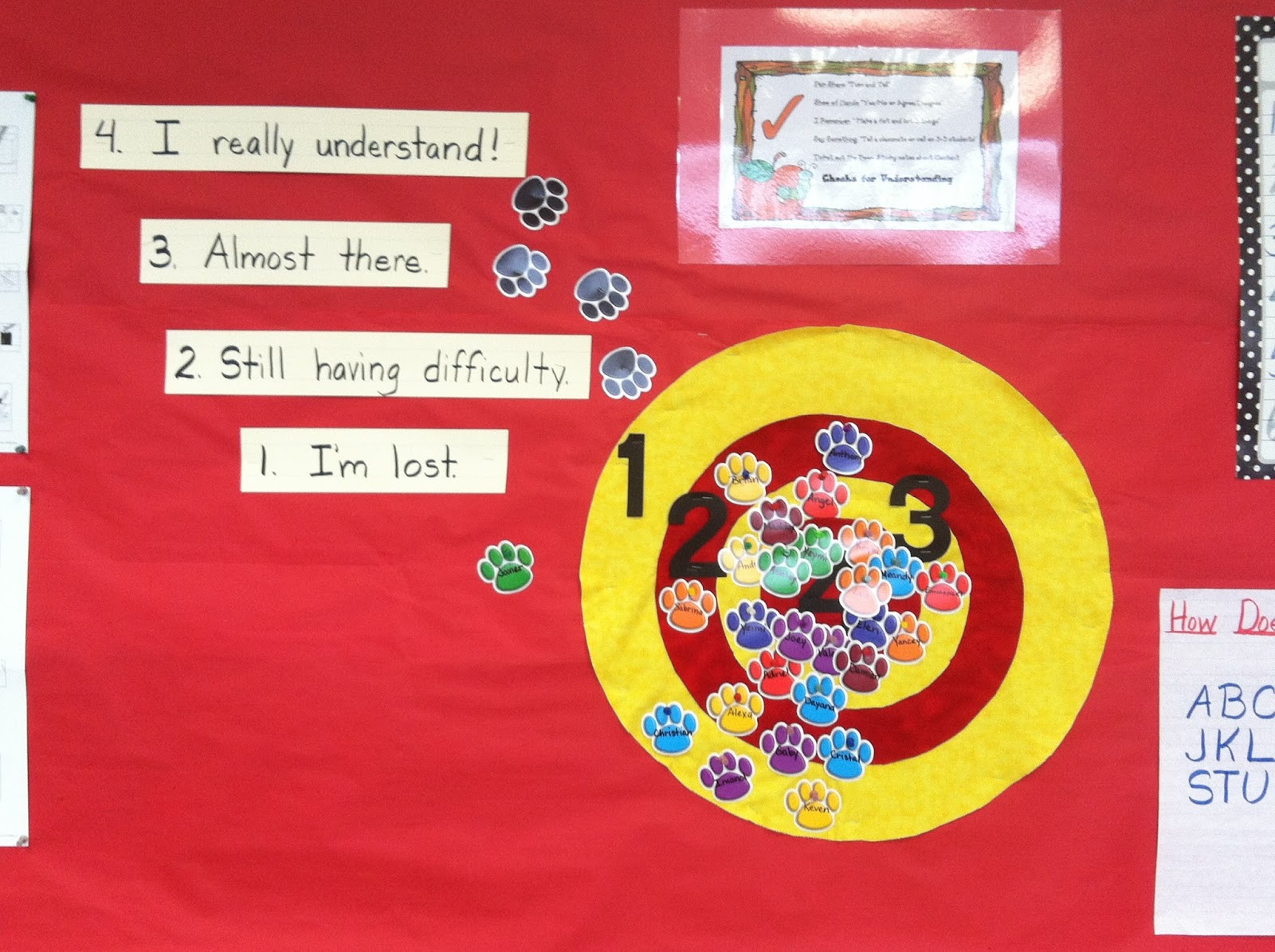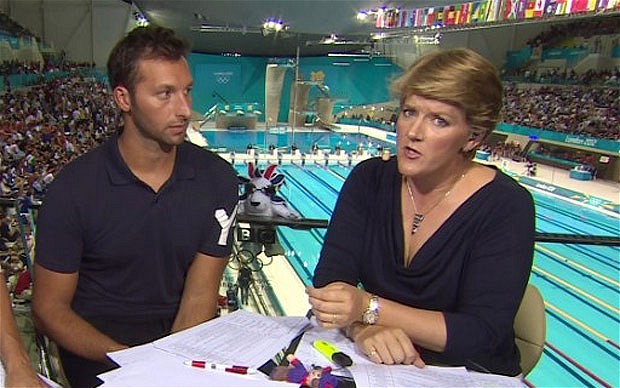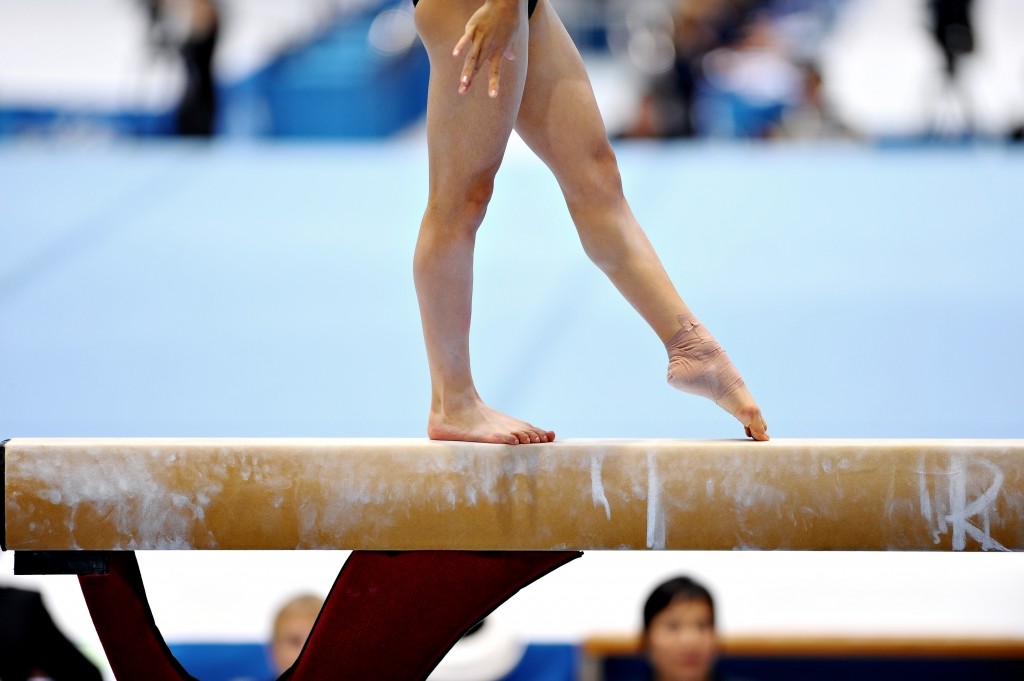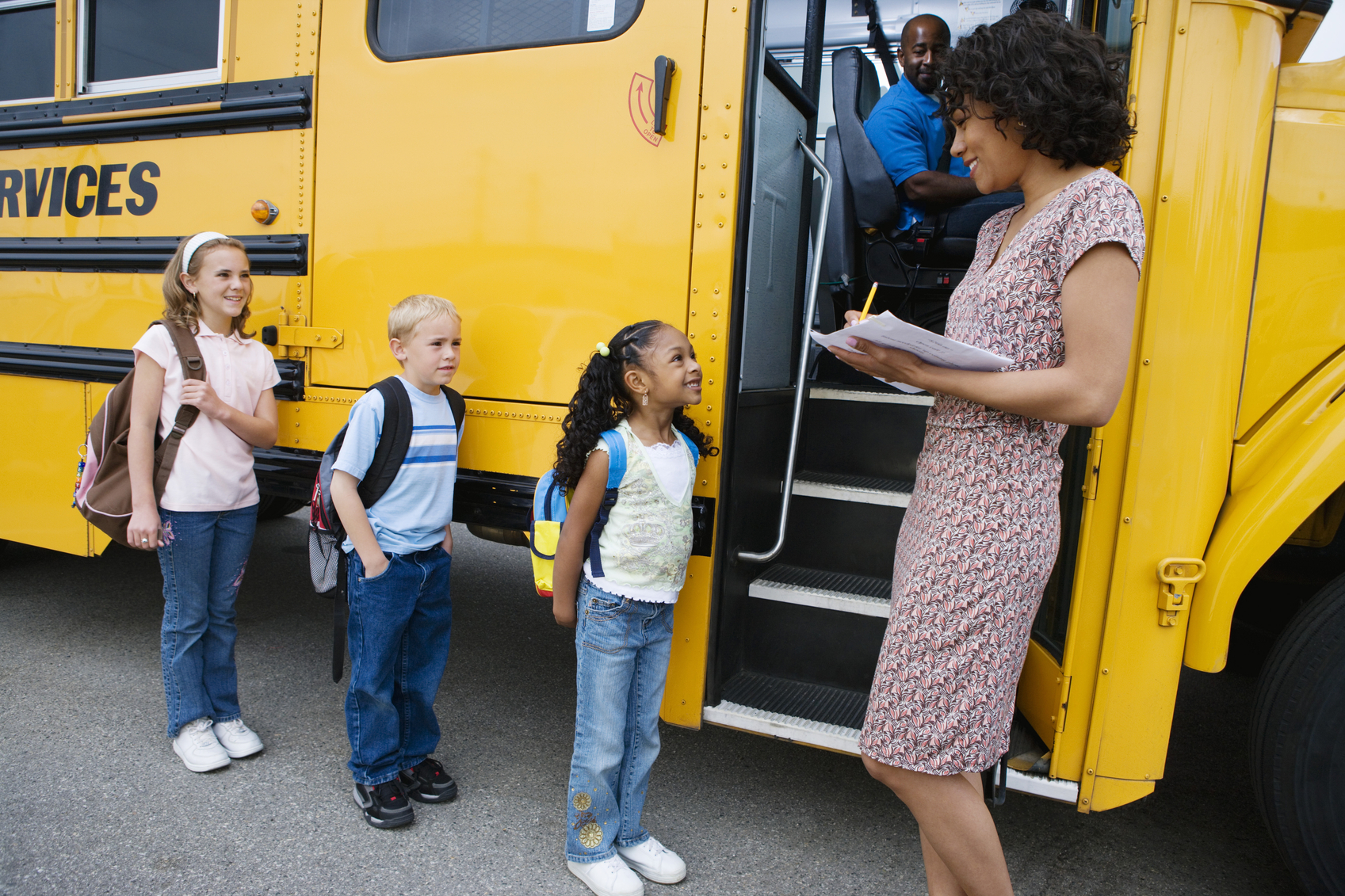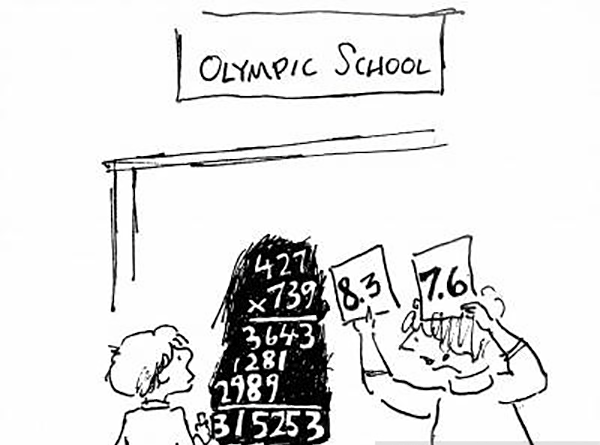Clearing the Hurdles
By Julie Rine, Minerva Local Education Association
 The Olympics are here, and in a time of political divisiveness, we can finally unite with a common desire that our athletes’ long practices and hard work will lead to a victory for Team America.
The Olympics are here, and in a time of political divisiveness, we can finally unite with a common desire that our athletes’ long practices and hard work will lead to a victory for Team America.
Within weeks, our version of the Olympic games begins: the 2016-2017 school year. The events are numerous and varied, and after a well-deserved break, it’s time to get back in shape for our Games.
1. Starter Gun Shot
For me, one of the greatest moments of the last day of school is turning off the 5:30 AM daily wake up call on my phone. Now it’s time to turn it back on and train myself to jump eagerly out of bed when it first goes off so I can be ready for our Opening Ceremony (Teacher Convocation Day).I can usually do that successfully until November, and then it becomes the starter gun snooze.
2. Synchronized September
If I could fast forward to the end of September, I would. The beginning of the year is fraught with stops and starts, with new students coming and other kids switching class periods, with class meetings and assemblies, but by the end of September, my classes and I are in sync. They know the rules and expectations, I know their names and strengths, and we are enjoying the rhythm of routine. The repetition and practice to get there can be painful, but the results are worth it.
3. Target Practice
Having a target is crucial to meeting with success. When I first started teaching, I would teach a unit and then write a test based on what we had studied. Now, I decide what I want my students to know and plan lessons to fit that goal. I also share with my students what the target is, because it’s important for them to know how close they are to reaching the goal. I still tweak final assessments to reflect what we may have focused on in class, but having a clear target makes planning and learning more effective.
4. Commentator Chit Chat
When an Olympic commentator notes, “I think he will be disappointed with that performance” or “She still has the team event coming up”, we all know what that means: “That performance was an epic disaster.” As a teacher, we have to learn how to properly phrase what we say, too. Calmly saying “I think one more attempt at revising this essay would make it really strong” rather than “Are you kidding me? You changed one word and called that a revision?” is a much more productive way to start a conversation with a student about reworking an essay. When parents request a phone call every time their child doesn’t turn in an assignment, pointing out how great it is that they can now check their child’s grades online at any time is much better than saying “Do you seriously think I have time to do that for every student I teach?” It’s not that there isn’t a place for blunt honesty, saying what you’re thinking in a kinder way that is much more likely to produce positive results.
5. Classroom Gymnastics
Olympic Gymnastics are a combination of precision and artistry. Some events require incredibly tight maneuvers; one wrong move and the vault or the flip or the jump can end disastrously. On the other hand, the best routines, while technically flawless, are also highly artistic and emotionally rich. The best teachers know that lesson plan delivery requires both science and art. The plotting of which methods to use is essential; not every technique works for every content area or activity. However, even the best technical plans need finesse, a tuned-in element to the kids in the room, a feeling for when to push a discussion and when to back off, when to veer slightly off track and when to stick to the plan. The science of teaching can be learned, but the art of teaching comes from experience, and in some cases, from natural ability.
6. Real-life Relay
No one teacher can do it all. In fact, it takes more than teachers to make a truly effective school community, one in which every student is encouraged, supported, protected, and loved. In the course of a day, our students pass from bus drivers to playground monitors to cooks to custodians, and in their lap of the school, they see teachers, aides, and principals, too. We are all on the same team and every one of us is necessary in order for our students to have a fulfilling and rewarding educational experience.
7. The Modern Day Educational Pentathlon
The modern pentathlon with its current events was first introduced at the 1912 Stockholm Games by Baron de Coubertin, who believed that the various events would test “a man’s moral qualities as much as his physical resources and skills, producing thereby a complete athlete.” Our state tests represent (or are supposed to) a wide variety of skills that produce a complete student, a student who is capable of reading, writing, analyzing, problem-solving, and critical thinking. But can you truly measure a complete student with a test? Doing well on a standardized test does not necessarily mean a child is “college and career ready”. Yet the tests remain the ultimate contest for our students, and the stakes are high.
8. The Judge’s Scores
All of the hard work, long practices, and years of competition experience combine to get an Olympian athlete ready for the main event every four years. In education, even the days when no other adult steps foot in your classroom prepare you for the day when an evaluator arrives. Most of us realize that our teaching ability is not truly reflected in a one-day observation; ineffective teachers cannot skate by on a few formal evaluations in which they pull out all the stops, nor will highly effective teachers lose their jobs based on an evaluation of a class in which everything that could go wrong, did. Still, a positive evaluation which reinforces that we are doing an effective job is rejuvenating. And, unlike the Olympics when the judge’s score is the final evaluation, the educational “judge” can (and should) also be a coach, giving meaningful feedback to the teacher. Gaining true guidance in how to improve our practice is invaluable.
Most people can swim or run or do a cartwheel, but an Olympic athlete takes those common activities to new levels of spectacular. Most people can read or write or solve an equation, but a gold-medal caliber teacher can help students achieve new academic and personal heights in these and other areas. We are educational Olympians, and our team is called on to demonstrate precision, artistry, endurance, resilience, and flexibility in our performances every day. As the new year begins, remember that you have trained for this. You are ready! And when the year is completed, or maybe after a particularly challenging school day has come to an end, close your eyes and imagine a Gold Medal hanging around your neck, an audience exuberantly applauding for you, and your school fight song blaring through the speakers. While teachers typically don’t get this kind of public accolade for their performances, we are just as deserving of high praise as are the Olympic athletes.
Save
Save
Save
Save
Save
Save
Save



